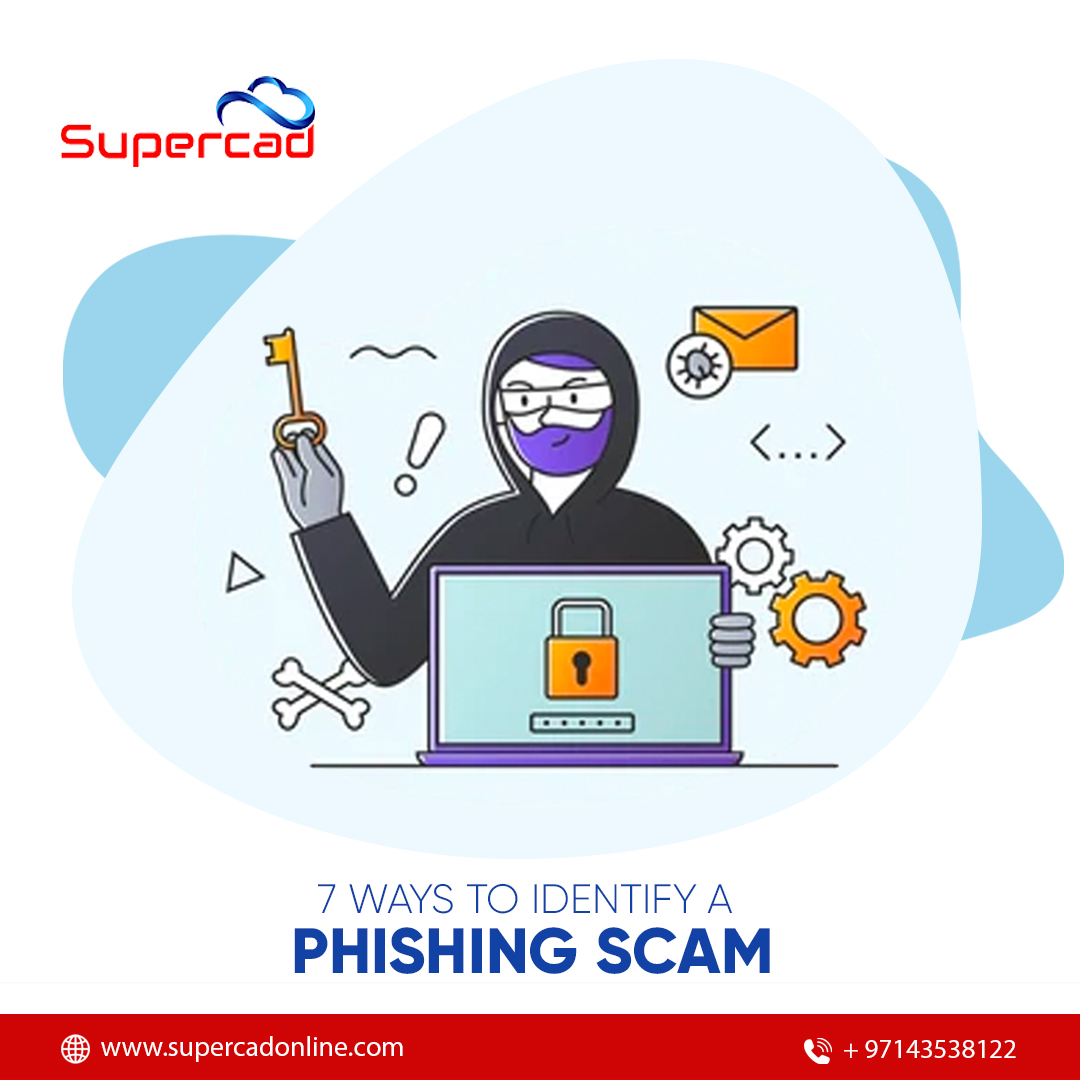7 ways to identify a phishing scam
Phishing is not a new phenomenon; it has been the most common attack vector for cybercriminals for many years; however, due to the increasing complexity of phishing scams, knowing how to spot a phishing email is more important than ever. Despite advances in anti-virus protocols and detection technology, the number and severity of phishing attacks continue to rise. Everyone is a target in today’s cyberwar environment, but by educating your workforce on how to detect phishing and respond appropriately to phishing attacks.
Here are seven ways to identify a phishing scam:
- Emails demanding urgent action: Phishing emails frequently threaten a negative outcome or a loss of opportunity unless immediate action is taken. Attackers frequently use this tactic to rush recipients into action before they have had a chance to examine the email for potential flaws.
- Emails with bad grammar and spelling mistakes: Another sign of phishing is incorrect grammar and spelling. Many businesses use spell-checking tools by default in their outgoing emails to ensure that they are grammatically correct. Autocorrect and highlight features on web browsers are used by those who use browser-based email clients.
- Emails with an unfamiliar greeting or salutation: Emails sent between coworkers usually begin with an informal salutation. Those that begin with “Dear” or contain phrases not commonly used in casual conversation are from sources unfamiliar with the style of office interaction used in your company and should be treated with caution.
- Inconsistencies in email addresses, links & domain names: Another method for detecting phishing is to look for inconsistencies in email addresses, links, and domain names. Is the email from a company with whom you frequently communicate? If this is the case, compare the sender’s address to previous emails from the same organization.
- Suspicious attachments: The majority of work-related file sharing now occurs through collaboration tools such as SharePoint, OneDrive, or Dropbox. As a result, internal emails with attachments should always be treated with caution – especially if the extension is unfamiliar or is commonly associated with malware (.zip, .exe, .scr, etc.).
- Emails requesting login credentials, payment information or sensitive data: Emails requesting login credentials, payment information, or other sensitive data from an unexpected or unfamiliar sender should always be treated with caution. Spear phishers can create fake login pages that look identical to the real thing and send an email with a link that takes the recipient to the fake page.
- Too good to be true emails: Too good to be true emails are those that entice the recipient to click on a link or open an attachment by promising a reward of some kind. If the sender of the email is unfamiliar, or if the recipient did not initiate contact, the email is most likely a phishing attempt.
Supercad Trading is your go-to provider of IT AMC in Dubai, offering cutting-edge IT, consulting, and trading solutions. It is one of the most dependable cyber security companies in Dubai, with a team dedicated to providing customer-centric information technology solutions at reasonable prices. If you are looking for cyber security services in Dubai, contact them

